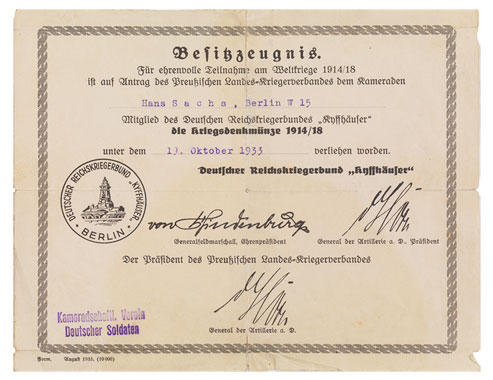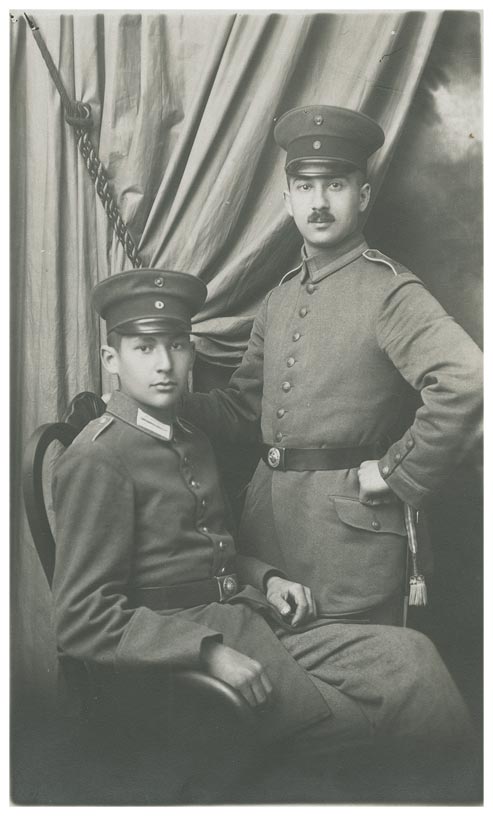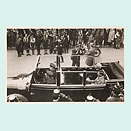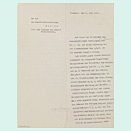Thursday
19 October 1933
Award of the 1914/18 commemorative medal to Hans Sachs
Hans Sachs (1886–1941) had been leading a busy civilian life as a cravat manufacturer for many years when, on 19 October 1933, he was awarded the 1914/18 commemorative medal by his veterans‘ association, the German Warriors‘ League "Kyffhäuser" (Reichskriegerbund "Kyffhäuser").
There was good reason to honor Sachs "For Loyalty in the World War." In 1906, he finished his service as a one-year volunteer and entered the reserves as a corporal. It was probably then that he joined the Comradely Association of German Soldiers (Kameradschaftlicher Verein Deutscher Soldaten). Sachs served in World War I from 1915 until shortly before hostilities ended, when he was deemed unfit for service and sent home. He renewed his membership of the veterans‘ association every year, including in 1933.
But 1933 brought far-reaching changes for Germany‘s countless veterans‘ associations. The first were imposed by the associations‘ own umbrella organization, the "Kyffhäuser League." By May 1933, the League president Rudolf von Horn and the organization as a whole had already pledged loyalty to the Nazi state, heralding the end of the previously independent provincial associations. On 30 September 1933, von Horn then ordered the implementation of an "Aryan paragraph"— which excluded non-Aryans from membership. The deadline for their resignation was 1 November.
Not all the veterans‘ associations endorsed this order: they were well aware of their Jewish comrades‘ achievements and patriotic loyalty, and rightly regarded the exclusion as an act of defamation. Perhaps for this reason, or perhaps as a way of honoring him for his service to the association and his fatherland before he left, Hans Sachs was awarded this commemorative medal as late as October 1933. But his resignation was still inevitable. "We emerge upright and proud from the struggle that we endured for four years against a world of enemies"—Hindenburg‘s words are quoted on the reverse of the medal. For Hans Sachs, they would take on a very different meaning in the years to come.
Ulrike Neuwirth



